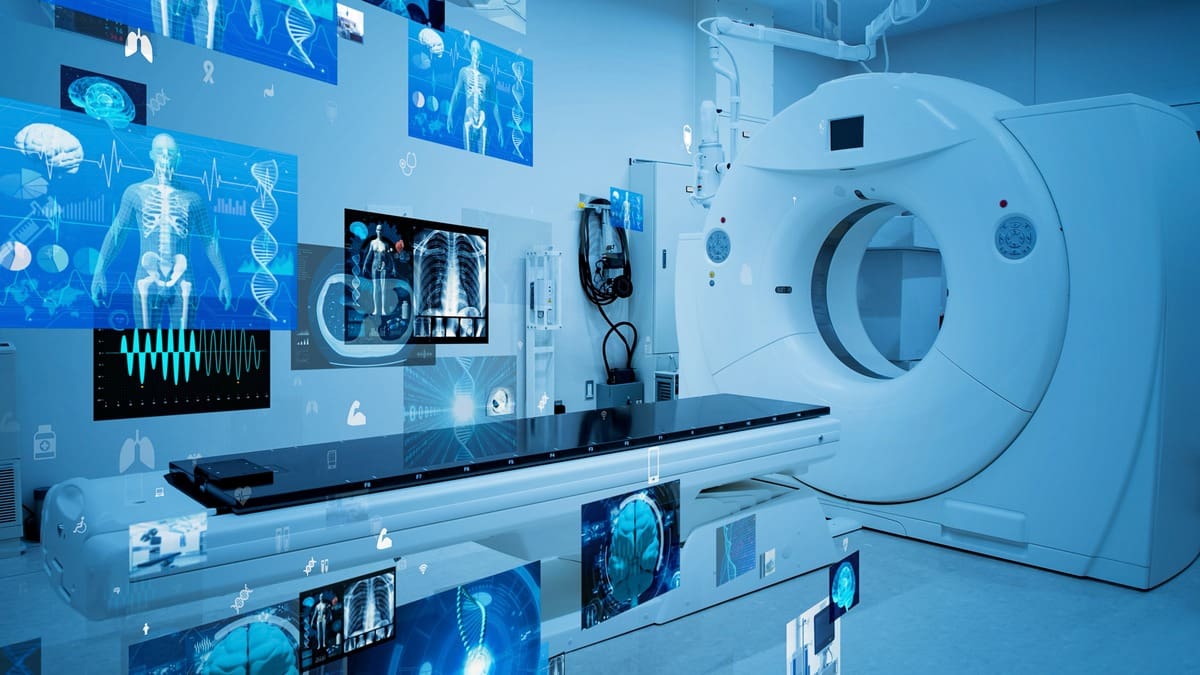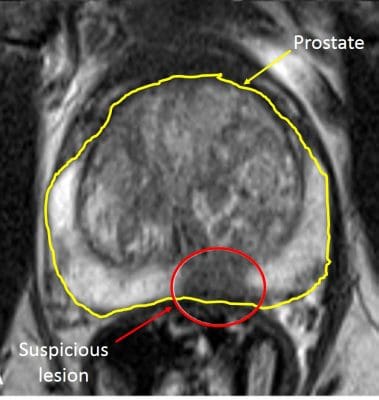Multiparametric Prostate MRI at Urology Partners of North Texas (UPNT)
At Urology Partners of North Texas (UPNT), we offer multiparametric prostate MRI (mpMRI) as an advanced diagnostic tool for men with an elevated PSA or a diagnosis of prostate cancer. This highly detailed imaging technique provides high-resolution images of the prostate, helping to identify suspicious areas, guide biopsies, and improve treatment planning.

Our experienced team works closely with preferred MRI imaging centers in North Texas to ensure patients receive high-quality scans. Each MRI is carefully reviewed by our urologists in collaboration with radiologists to deliver the most accurate diagnosis and personalized treatment recommendations.
- Serving Arlington, Fort Worth, Mansfield, and North Texas

What is a Multiparametric Prostate MRI?
A multiparametric prostate MRI (mpMRI) is an advanced imaging test that combines three different types of MRI sequences to provide a comprehensive view of the prostate gland. This test helps identify potentially serious lesions and reduces the need for unnecessary biopsies.
How Can mpMRI Help?
- Detect clinically significant prostate cancer with greater accuracy.
- Reduce unnecessary biopsies by identifying low-risk lesions.
- Determine tumor size, location, and potential spread for better treatment planning.
- Guide targeted biopsies, improving diagnostic accuracy.
Why UPNT Uses Prostate MRI’s
The Multiparametric prostate MRI is a vital part of our approach to diagnosing and managing prostate cancer. It allows our urologists to provide precise, personalized care while minimizing unnecessary procedures.
- Increases accuracy—reducing the chance of missing clinically significant cancers.
- Helps avoid unnecessary biopsies when MRI findings show low-risk lesions.
- Provides critical details about tumor size and aggressiveness.
- Guides targeted biopsies, focusing only on high-risk areas rather than random sampling.
MRI-Guided Biopsy vs. Traditional Biopsy: Which is Better?
Feature
MRI-Guided Biopsy
Traditional Biopsy
Accuracy
Risk of Missing Cancer
Need for Repeat Biopsy
Diagnostic Precision
Understanding the PI-RADS Scale
PI-RADS Scoring System
PI-RADS Score
What It Means
Recommendation
PI-RADS 1-2
PI-RADS 3
PI-RADS 4-5

The UPNT Process for Ordering a Prostate MRI
- 1. Consultation
- 2. Scheduling the MRI
- 3. Review of Results
- 4. Next Steps
FAQs About Prostate MRI
Is a prostate MRI better than a biopsy?
Does insurance cover a prostate MRI?
Where can I get a prostate MRI in North Texas?
How long does a prostate MRI take?
Next Steps: Schedule a Consultation
- Conveniently serving Arlington, Fort Worth, Mansfield, and North Texas